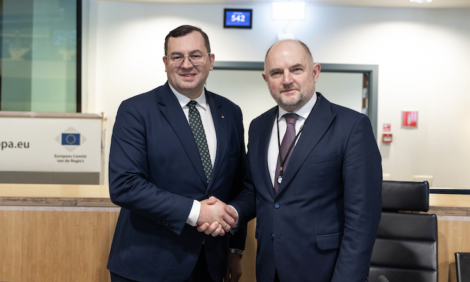



British meat industry labour shortages signal it’s time to get serious
The British Meat Processors Association (BMPA) discusses just how dependent the British meat industry is on EU workers.In an article published last month, the BMPA laid out "some home truths" about the potential difficulties that will be faced when filling roles in the British meat industry post-Brexit. Currently, EU workers fill 70 percent of the meat processing roles in the UK, with only 40 percent meeting the new 'skilled' worker threshold.
The £30,000 salary threshold for ‘skilled’ migrants that Government is proposing is more than BMPA skilled butchers are paid so these workers won’t qualify to work in the UK. This would open up thousands of jobs for which the UK doesn’t have enough trained butchers to fill.
"Companies in the meat industry (as in many other industries) are also experiencing an exodus of EU workers," reports the BMPA.
"Some are returning to Europe because of Brexit uncertainty and higher earning potential due to the collapse in the Pound. Others are being enticed into UK manufacturing, warehouse and delivery work. This is because record high employment in the UK is now causing labour shortages in these roles and pushing up wages for both British and foreign workers alike."
"Companies in the meat industry are experiencing an exodus of EU workers. Some are returning to Europe because of Brexit uncertainty and higher earning potential due to the collapse in the Pound."
-British Meat Processors Association-
The BMPA reminds people that both meat processing plants and the EU workers who are employed do much to support their local economies through rent, bills, shopping and taxes.
So why not solve these issues by recruiting more Brits or automating production? The BMPA says that these 'solutions' are not a "silver bullet" that can solve all of their problems. Many positions on a meat production line still require the "flexibility, dexterity and judgement of a human".
What needs to be done?
The BMPA believe that the two-year transition period will help but that longer-lasting solutions will be required to deal with labour shortages.
They believe that a visa system that provides access to both skilled and non-skilled workers in to the UK who earn under £30,000 is essential. This visa system also needs to recognise the fact that this is year round, permanent production not seasonal work.
For now, the BMPA assures all member that they will persist with Ministers and civil servants who are involved in policy decision-making.






